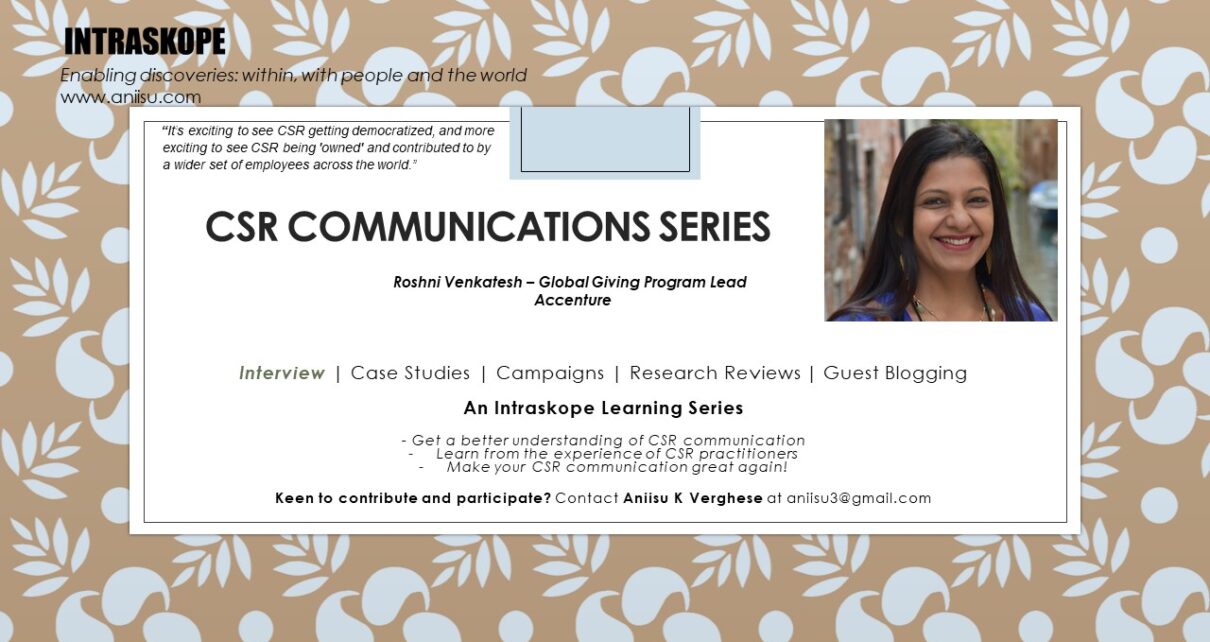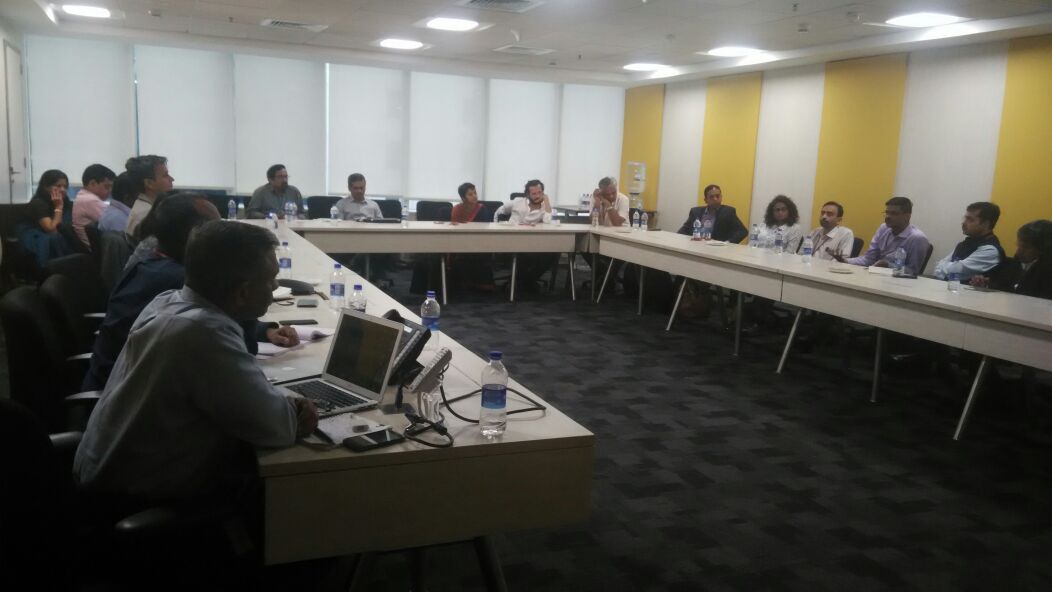Every employee is a steward of the organization’s corporate social responsibility agenda and impact. How organizations involve them to contribute widely to society will influence reputation, the business and the impact it makes. In the 2nd edition of the CSR Communications Series, Roshni Venkatesh, an experienced CSR practitioner, shares her experiences with communications, what it takes to leverage this powerful tool while curating initiatives and how can people passionate for CSR make a career in this domain.
This series invites CSR practitioners to share perspectives on the role of communication in showcasing the organization’s citizenship intentions, involving employees in driving social change and making a difference to employee engagement and the world.
Watch the YouTube video interview and read the complete interview below. Look up more such stories on my YouTube channel and on LinkedIn.
Interview
(Views expressed by Roshni are personal)
1. How is CSR/sustainability defined by your organization? How important is CSR communications for your organization and why?
It is across all players in the ecosystem, internal and external. Increasingly it’s about “Responsible Business”, pulling together up, down and across business and operations. CSR communications play an important role in signaling how an organization is standing up internal processes and metrics; or influencing behaviors and an inclusive / diverse culture; or acting in the community to help address those most in need. CSR has evolved beyond a restricted set of activities or publications or discrete programs and projects.
2. How does your organization communicate CSR? What methods, channels and resources do you use?
The ideal situation is that everyone in the company stewards and champions responsible business and social responsibility in any and every interaction – whether it be with clients, suppliers, community organizations and vendors. There are global and local channels, internal as well as external channels, UNGC communication on progress, submissions of GRI reporting. Annual reports include detailed and complex sets of data to uphold the overall messages. There are forums, conferences, research publications, whitepapers and acting as part of coalitions united by a set of objectives. It’s all almost completely digital.
3. Is there a dedicated team or individual for this role? If yes, what skills do they have and what skills does your organization value most?
There are dedicated teams in almost every region / country of operations – sizes vary however, depending on the size of the local business. They are a diverse mix of CSR practitioners, business consultants, social innovators, learning specialists. The skills that are most valued are the ability to connect the dots internally to galvanize support, to be able to create compelling business cases for change or for an initiative, for the overall strategy, to have excellent execution abilities, and to be able to traverse the continuum between a high-level strategic standpoint of ‘why we do what we do’, right down to the ‘how do we do it’ and what we need to mobilize. Program and project management skills are needed, as are needed relationship management skills.
4. Are there budgets allocated to CSR communications and to what kinds of activities does the organization invest most on?
Yes, there are budgets, and plans that are detailed. These are mostly in the area of upholding memberships to various groups, e.g. UN Global Compact and ensuring consistent and high-quality reporting is submitted, unified messaging across different platforms and media on CSR strategy, achievements and commitments.
5. What trends do you observe with CSR and related to communicating with internal stakeholders?
It’s got far more democratized – with interest groups working with each other, there are multiple ways in which they interact with each other and with other groups. It’s no longer only about a central messaging that gets generated and pushed out, it is now also about people working with each other and generating content and credentials. It’s exciting to see this shift, and more exciting to see CSR being ‘owned’ and contributed to by a wider set of employees across the world.
6. What advice do you have for CSR practitioners to communicate effectively?
Tell the story – too often we get bogged down by the details and forget the human story or the thing that gets people excited and gets them to understand why the organization did this, or what impact did it have in real terms on lives.
7. What advice do you have for those aspiring to join this evolving domain?
Research the organizations and what they are doing, determine which are really moving the needle and bringing this domain into a solid interlock with business. Make sure there’s enough support and funding for CSR communications, and importantly for CSR practitioners and teams. Most organizations will have small CSR teams, so your ability to be across various types of work would be invaluable, ability to wear multiple hats, managing time and urgent requests which most often come from the most senior people when it comes to CSR.
8. How can organizations get better with CSR communications?
Have a strategic comms plan, align to the CSR focus and mission, be proactive about creating the agenda and not waiting for the ‘work to happen’ to then create some communications around it.
Views expressed by the interviewee are personal
Keen to participate in the ongoing series on CSR Communications, Personal Branding or Internal Communications? Drop me a note at [email protected]
#community #stewardship #CSRcommunications #citizenship #socialimpact #employeengagement #communications #fcommitment #societalvalue #CSRcareers #careers #CSRpractice #CSRleaders



